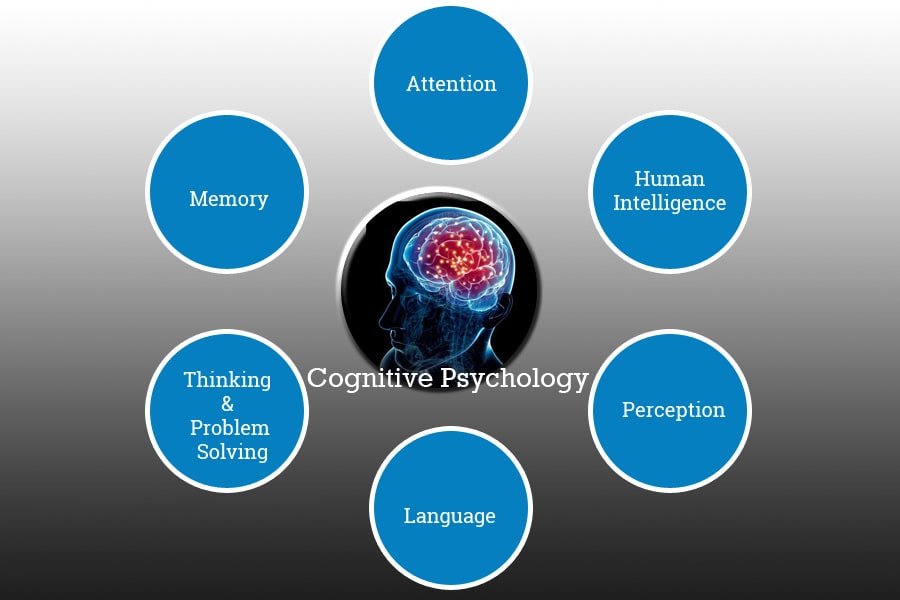Cognitive Psychology

Every decision, every memory, every thought – it all starts within the intricate network of your brain.
Cognitive psychology opens a window into the intricate workings of our minds, exploring how we think, learn, remember, and make decisions. Imagine understanding why you forget where you left your keys or how you solve a tricky puzzle. This fascinating field delves into the mental processes that shape our everyday experiences, revealing the intricate dance between perception and action.
As we navigate our busy lives, cognitive psychology offers insights that can enhance our learning and improve our problem-solving skills. By studying how we process information, researchers uncover strategies to boost memory and creativity. Whether you’re a student striving for academic success or a professional looking to sharpen your skills, the principles of cognitive psychology can empower you to think more effectively and live more fully. Join us on this journey to discover the amazing capabilities of the human mind!
Cognitive Processes
Thinking, Feeling, and Imagining
These basic human functions play a significant role in our daily lives, enabling us to live healthier lives and be active members of society. Here are a few critical cognitive processes:
Attention
This involves concentrating on specific information while ignoring other perceptible information. It consists of three components: orienting, filtering, and searching, and can be focused on a single source or divided among several.
Human Intelligence
Intelligence encompasses reasoning, problem-solving, and learning. Standardized tests can measure intelligence, predicting various social outcomes such as school success, job satisfaction, health, and lifespan.
Perception
This is the set of mechanisms we use to make sense of the stimuli we encounter. Our sensory input, personal physical capabilities, energy levels, emotions, and cultural behaviors all influence our perceptions.
Language
The ability to communicate differentiates humans from other animals. Language is our primary tool for expression and communication, shaping our social connections and giving structure to our lives.
Thinking and Problem Solving
Critical thinking involves assessing, reinterpreting, and evaluating ideas and thought processes. Problem-solving is identifying and analyzing issues to determine the most effective solutions.
Memory
Memory is essential for functioning in the present and planning for the future. It involves encoding, storage, and retrieval, with issues potentially arising at any stage. Rehearsing and reviewing information help improve recall.
The Rise of Cognitive Psychology
Before the advent of cognitive psychology, various approaches like psychophysics, behaviorism, and psychodynamics dominated the field. The year 1956 marked the beginning of a new era, challenging behaviorism and focusing on the functionalism aspect. Cognitive psychology gained attention for its scientific methods, leading to more sophisticated examinations of cognition.
Today, cognitive psychology is a popular branch of psychology with applications in various fields, including medicine. The process starts with perception, where sensory information is analyzed and filtered by the brain. This learning and memory-storing process creates records of received information. These records can be retrieved to assist in different situations, aiding in mental processes like thinking and problem-solving.
Limitations of Cognitive Psychology
While cognitive psychology is a vital branch of psychology, it has its limitations:
Task Impurity
Many tasks developed by cognitive psychologists may not evaluate a single feature, potentially reflecting multiple types of cognition.
Lack of Ecological Validity
Experimental settings often remove people from their natural contexts, which may not reflect real-life behaviors.
Conclusion
Cognitive psychology reveals the remarkable capabilities of our minds, offering insights that enhance our learning, problem-solving skills, and overall quality of life. By understanding and applying its principles, we can unlock our potential to think more effectively and live more fully. Whether through improved memory strategies or better problem-solving techniques, cognitive psychology empowers us to navigate our complex world with greater ease and confidence.